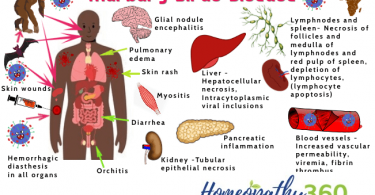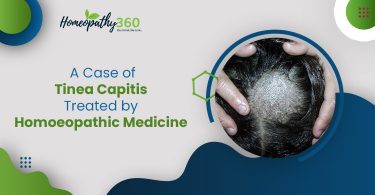
Introduction
Swelling of feet and ankles in old people is pedal oedema.
Possible Causes:
- Congestive heart failure
- Cirrhosis of the liver
- Kidney disease
- Poor circulation
- Varicose veins
- Inflammation of the deep veins called thrombophlebitis
- A damaged lymphatic system
- Thyroid conditions
Oedema can also be caused by different types of medications. Swollen ankles often result from an individual changing from one kind of medication to another or from changing the dosage amount of a medication.
Drugs Adverse/Side effects can cause fluid retention in Patients who are on following conventional line of treatment
- Calcium channel blockers
- Beta blockers
- Nitrates
- Antihypertensives
- Anti-arrhythmics
- Diabetesmedications
- Adernergic agonists
- Anti-inflammatories
- Narcotic medications
- Chemotherapeutic agents
More Common Causes of Swollen Ankles in the Elderly:
- Gout:
Gout is due to deposition of monosodium urate (MSU) crystals in the articular and periarticular tissues. The risk of gout is related to the duration of hyperuricemia, and hence related to longetivity. Increase in cardiovascular, renal, and metabolic morbidity in the elderly, results in decreased GFR and reduced uric acid excretion, along with polypharmacy, may precipitate hyperuricemia.
- Elderly individuals that injure their ankle in some way often have swelling.
This occurs with the following:
- Broken ankle
- Sprained ankle
- Ankle strain
- A fractured ankle that is not detected
- Reinjuring a previous ankle injury
- Cellulitis:
Caused by a bacterial infection such as staphylococcus or streptococcus , cellulitis is generally a treatable condition. However, it can also be very dangerous, especially for people with a compromised immune system or those who have diabetes. It is very important to get prompt treatment to stop the spread of infection as soon as possible. Common locations for cellulitis to occur are the legs, ankles and feet. Symptoms include swelling, redness and pain.
- Additional Possible Causes:
- Wearing shoes that do not fit properly
- Anemia
- Improper diet
- Insect sting or bite
- Tendinitis of the ankle
- A blood clot or other vascular obstruction
HOMOEOPATHIC THERAPEUTICS:
- Apis Mel: simple dropsy between the skin and the flesh with fever; unabsorbed effusion after inflammation of the serous cavities; Patient has no thirst; dropsical condition is aggravated by heat.
- Arsenic Album: dropsy after scarlatina with albumin in urine and thirst; cardiac and lungs disorders; puffiness of the face and around the eyelids.
- Calcarea Carb: dropsy is aggravated by bathing.
- Apocynum: dropsy of serous membrane; acute, inflammatory; dropsy with thirst; water disagrees or is vomited; most cases uncomplicated with organic disease; after typhus, typhoid, scarlatina, cirrhosis; after abuse of quinine; acute hydrocephalus.
- Digitalis: dropsy is due to heart disease; nausea, vomiting, and diarrhea; urine scanty and contains albumin; swelling of feet, and genitals.
- Squilla: acute dropsical condition with suppression of urine
- Aurum Mur: dropsical swelling with albumin in urine; from induration of abdominal organs, with intermittent fever; hectic fever; from disease of liver or spleen
- Terebinthina: from congestion kidneys; with renal affections, great prostration.
- Thyroidinum: oedema of limbs and face without any apparent cause
- Acetic Acid: skin pale and waxy; dropsy with marked thirst; anasarca; ascites, abdomen and limbs swollen; sour belching, water brash and diarrhea, great emaciation
- Bryonia Alba: anasarca and oedema of the feet; hydrothorax; ascites; congestion of the head; lower eyelids edematous; great thirst and scanty urine; obstinate constipation; dropsy after scarlet fever; the swelling increasing in daytime and lessening in night.
- Colchicum: dropsy after scarlatina, dropsy of cavities and internal organs, especially hydro pericardium; lower limbs edematous and cold; skin dry and pale.
- Dulcamara: sudden anasarca from previous overheating and subsequent exposure to damp cold while in a state of perspiration; general oedema from intermittent fever, with bloated face, swelling of abdomen and limbs; anasarca after previous rheumatic fever.
- Lachesis: dropsy of drunkards; after scarlatina; Skin over the edematous parts cyanotic; offensive smell of urine; complications with heart, liver and spleen troubles
- Lycopodium: ascites from liver affections; abuse of alcoholic drinks; upper portion of body emaciated, lower enormously swollen; restless sleep; sad and sensitive; one foot cold, the other hot; hypertrophy of heart; hydrothorax; dyspnoea worse when lying on back and motion.
- Rhus Tox: dropsy of lower extremities with constant profuse oozing of water from the ulcerated spots which do not form pus.
- Sulphur: hydrothorax; with sudden arrest of breathing at night in bed when turning to the other side; dropsy after suppressed eruptions, rough skin; bluish spots; quick pulse, cold feet.
- Spigelia: hydrothorax; danger of suffocation when making the least or rising the arms.
- Muriatic Acid: great remedy for dropsy from cirrhosis of liver; drowsiness, emaciation; dry mouth; apthae; stool watery and involuntary, stomach weak and irritable, cannot retain food.
- China: anasarca and ascites in organic disturbances of the liver and spleen; after loss of blood and other weakening discharges; dropsy in drunkards; skin pale and waxy, disinclination to mental or physical exertion; face hollow, pale and livid.
Possible Home Care
- Advise to put legs on pillows to raise them above their heart while lying down.
- Exercise This helps pump fluid from legs back to heart.
- Advise to Follow a low-salt diet, which may reduce fluid buildup and swelling.
- Wear support stockings (sold at most drugstores and medical supply stores).
- When traveling, take breaks often to stand up and move around.
- Avoid wearing tight clothing or garters around
- Lose weight if overweight
- Advise to Never stop taking any medicines that they may think be causing swelling without first talking to their health care provider.





